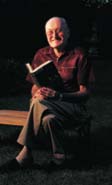 Making Surgery Safer Like most people, Paul Sackett never thought much of the heartburn that had periodically driven him to the medicine cabinet for antacids. "I just took an Alka-Seltzer," says the 70-year-old Citrus Heights resident. "I'd had it for 40 years." This minor annoyance turned into something more perilous last year. It began when Sackett was diagnosed with anemia. The hardy ex-Army officer and retired food service manager is no stranger to illness; he had a quadruple bypass in 1985, bouncing back from surgery within months. Then he got hepatitis C from blood he received during the surgery; a year's worth of interferon injections at UC Davis Medical Center chased the virus into permanent hiding. As he approached his 70th birthday, he took good care of himself and stayed active. He even worked weekends as the food service manager for a dining facility at UC Berkeley. "I have very good recuperative powers," says Sackett. "I have a strong life condition and I tend to heal very quickly." But the anemia - discovered during routine blood work - was troubling. He was losing blood for reasons his physicians could not explain. A gastroenterologist did a biopsy of his throat. The unfortunate news: adenocarcinoma of the esophagus. Esophageal cancer is a comparatively rare disease but one that has increased drastically in the last decade, perhaps because of its connection to a type of chronic heartburn called gastroesopha- geal reflux disorder (see Esophageal Cancer.)
Home |
Table of Contents |
To our Readers |
Building on Basics UC Davis Health System | © 2000, 2001, 2002 UC Regents. All rights reserved. |
Laparoscopic esophagectomy reduces risks, shortens hospital stays for patients with throat cancer. |

